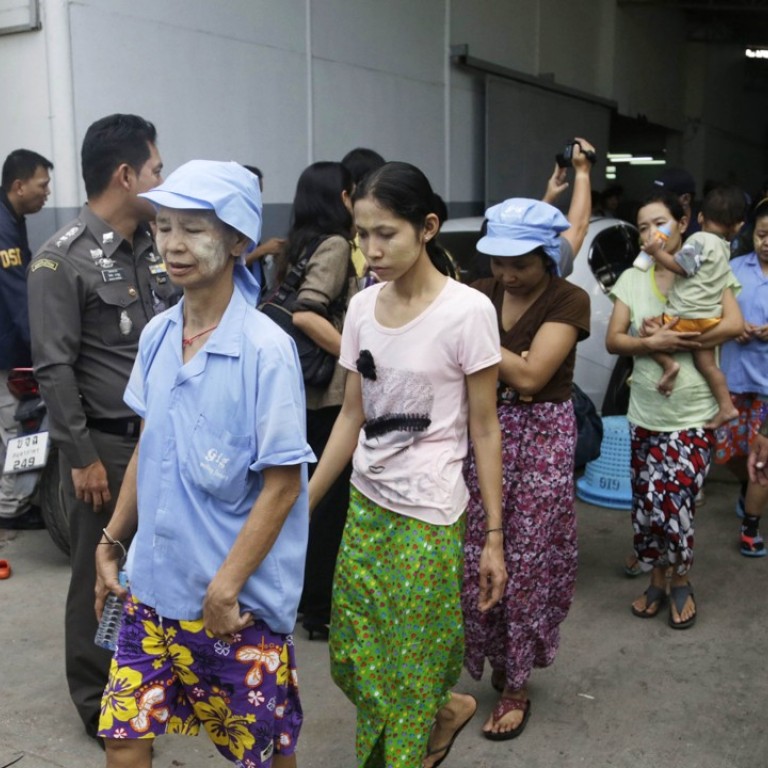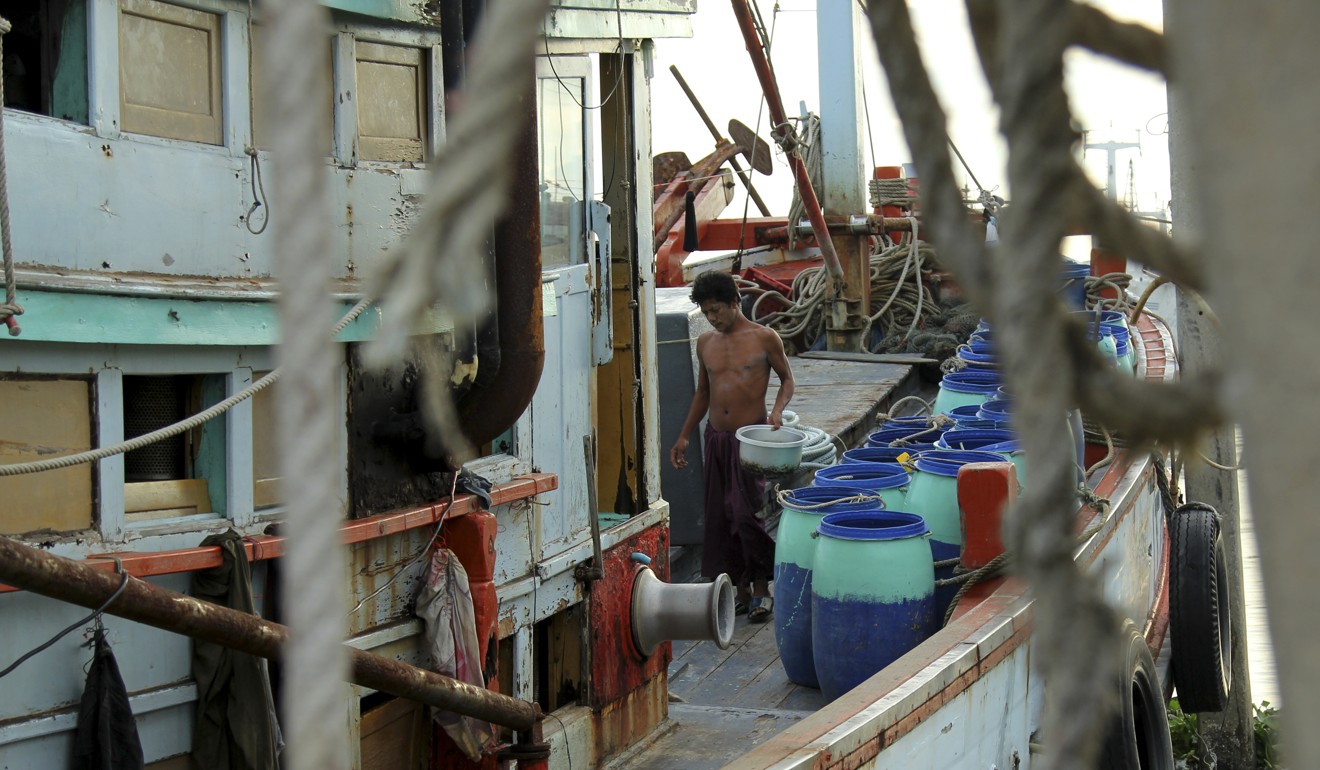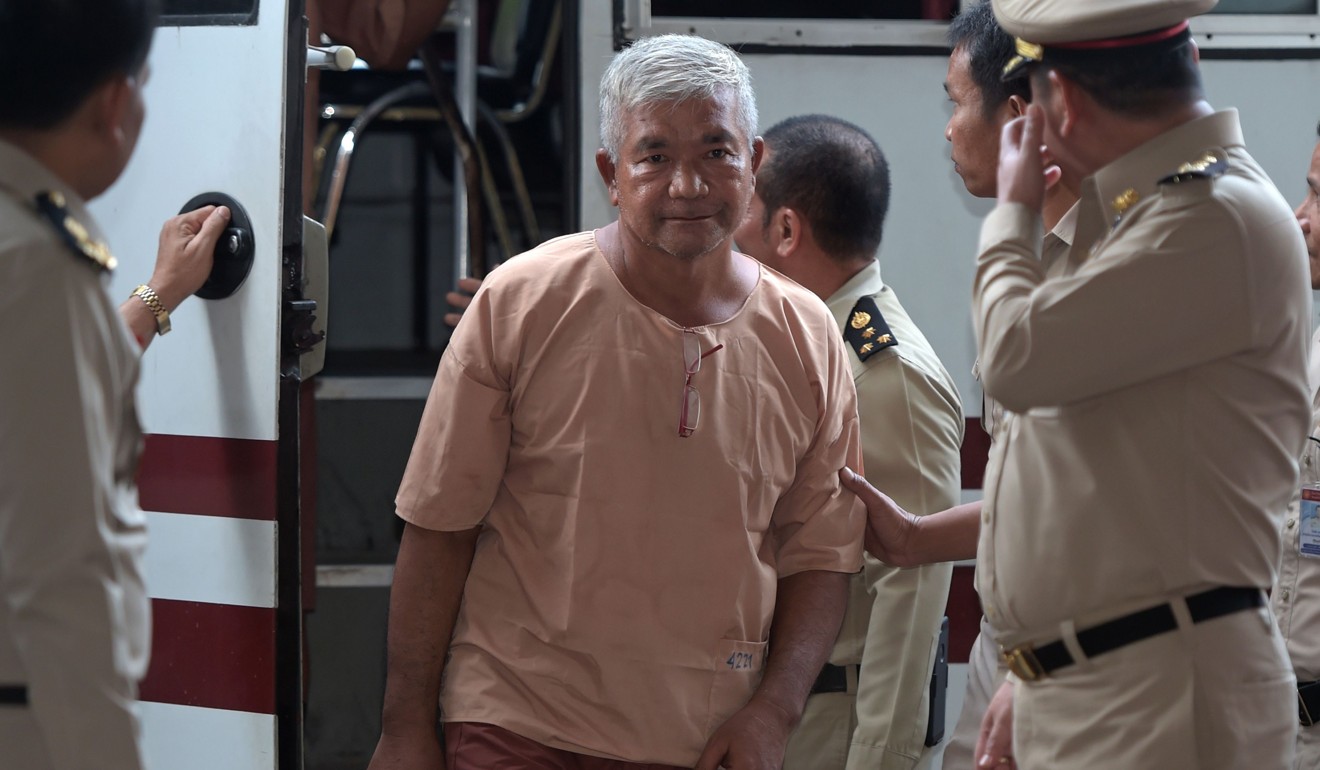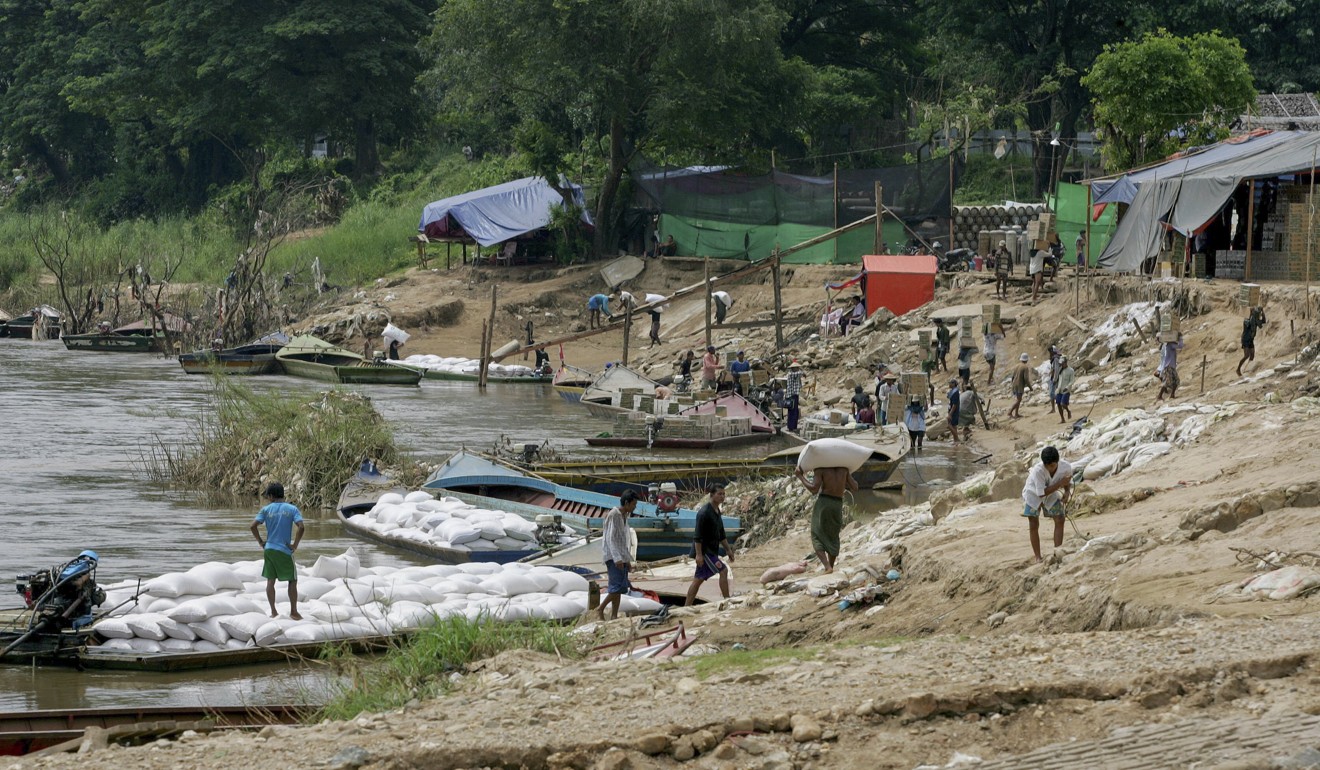
Who bears the brunt of Thailand’s crackdown on migrant workers?
Undocumented workers, many of whom fled violence in their home country, have to stay on and endure rampant discrimination and exploitation
It has been more than 10 years since Aye Min fled Myanmar amid the fighting between the military and the Karen nationalist forces. With nothing but the clothes on her back, Aye Min boarded a boat in 2006 and crossed the Moie river to Mae Sot, a district located at the border of Thailand and Myanmar.
Now 43, Aye Min lives in a house in Mae Sot where she works as a cleaner, receiving 300 baht (US$8) at most in a week. She hardly goes out though, afraid that she may be caught by the police and deported to Myanmar. “I have no documents,” she said in Burmese.
The other option for Aye Min is to go back to Mae La, the refugee camp where she and her sister first stayed upon their arrival in Myanmar in 2006. With her cropped hair, baggy trousers and polo, however, Aye Min, a lesbian, had been an easy target of discrimination when she was still in the camp. Some refugees, whether they are Muslims or Christians, would allegedly physically and verbally harass her for her sexual orientation.

“Men will put their hands inside the pocket of my shirt and touch my breasts – then they will laugh and say, ‘just checking if you still have them because you look like a man’,” she recalled.
The tougher migrant laws in Thailand served as a double whammy for Aye Min, an undocumented migrant who escaped Myanmar’s ethnic strife only to see herself wanting to escape homophobia in Mae La. When she finally did find a place she no longer wanted to escape from, however, she had to stay put, her room for growth literally limited as she cannot go beyond the confines of the house she cleans for a living.
The hunt
Tens of thousands of Myanmese migrant workers have fled Thailand following a crackdown of Thai authorities in the last week of June, with Reuters reporting that 16,000 Myanmese workers went home on June 29 alone.
In Mae Sot, Thai police went almost every night to bars and restaurants, looking for Myanmese workers and threatening the owners of the establishments that they would also be penalised if they were caught having Myanmese employees. “They went in suddenly, asking if there are Burmese people working at the pub,” Johanna Higgs, a women’s rights advocate visiting Mae Sot, said.
The military government issued a new executive order in June which imposes hefty fines on those employing foreign workers. Those found to be hiring undocumented foreign workers will be fined from 400,000-800,000 baht (US$12,000-US$24,000).
The Thai military government had gradually started to set in place stringent labour laws since 2014, but the latest decree was issued following Thailand’s Tier 2 ranking in the US State Department in its Trafficking in Persons report. It was an improvement from the country’s dismal ranking of Tier 3 in 2014.
What about the Chinese immigrants caught in Myanmar’s crossfire?
Thai authorities intensified their hunt of undocumented migrant workers in the last week of June, but backtracked with the exodus of undocumented migrant labourers. The Democratic Voice of Burma reported that on June 29, 2,500 Myanmese workers were deported to Myawaddy, the town across Mae Sot.

Manus, also known as Manat Kongpan, was exposed by the South China Morning Post eight years ago for orchestrating the brutal secret detention and expulsion of Rohingya migrants. Other defendants include police officers, local politicians and Myanmar nationals.
The Friendship Bridge
That the Myanmese will be deported to Myawaddy is a sad irony, as it is at the other end of what has been called as the “Friendship Bridge” between Thailand and Myanmar. Opened in 1997, it made trade and the flow of workers easier between the two countries.
I went to the Friendship Bridge myself on June 29. Men and women, with their families in tow, walked across the bridge overseeing the russet Moie River.
There were noticeably more people coming in from Myawaddy when I was there, than those coming out of Mae Sot. One of those who entered Mae Sot from Myawaddy is Nyi Zaw, who has been living in Thailand for six years. He said he needed to cross the bridge back to Myawaddy to get a temporary border crossing permit for his family, which is valid only for seven days. “We need to get this because of the labour migrant law,” he said, referring to the one introduced by the military government in 2014.
Aside from people, lining up at the 420-metre bridge were trucks containing assorted goods, showing robust trade between Thailand and Myanmar, which reached US$3 billion in 2016. The bridge served as a gateway of opportunities, so much so that the Thai government said in 2015 they planned to construct a second one.
The Friendship Bridge, however, is now also the main refuge for undocumented migrants. Karennews.org said Myanmese migrants can get a temporary border crossing permit by paying 20 baht (less than a US$1) to the Thai immigration office and 1,500 kyat (US$1) for registration at the Myanmese immigration office.
Cause of violence
A cause of alarm is that the crackdown on undocumented migrant workers can have adverse effects in the 100,000 refugees living in the nine camps in Mae Sot. A humanitarian worker who asked not to be named because he is not authorised to speak by his organisation, said it can increase cases of violence against women.
He explained that if women who are already working outside the camps are forced to go back every night, they can be more vulnerable to harassment. “They will go out of the camp for work. They will go back alone at night. If something happens to them, they cannot report to the authorities because they have no IDs. The system goes against them.”

He added that if there will also be less employment opportunities because of the clampdown on establishments hiring undocumented migrant workers, men who cannot find work outside of the camps could direct their anger and frustration on their wives. “There can be crime increase and more gender-based violence.”
The same goes for lesbians, gays and transgender in the camps. Already subjected to discrimination, he said that they can be more vulnerable to violence, a likely target of displaced anger due to economic woes.
“It doesn’t pay to report the cases of violence against them, because they will be made visible, endangering them further,” he said.
With 12 years of experience working with refugees, he said policies made to meet “national standards” or the demands of the government have discounted social and cultural impacts. “We just don’t do culture.”
And unless social and cultural facets are considered in the implementation of labour laws in Thailand, Myanmese undocumented workers like Aye Min may just ironically feel trapped inside a country they wanted to call home. ■
Purple Chrystyl Romero reported from Thailand as part of a fellowship from the International Reporting Project (IRP)
